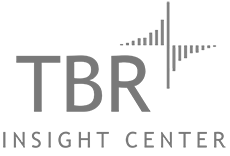KPMG is on the right path as the firm delivers connected, powered, trusted transformation
Connected, powered, delivered with trust: KPMG’s ambitions for its clients
KPMG’s approach to digital transformation revolves around the firm’s concept of the “Connected Enterprise,” an organization fully embracing information technology, networking and data to take every advantage of existing and emerging technologies. In KPMG’s view, fully embracing IT requires an enterprise’s transformation efforts be sustainable and cross-functional; that is, not simply transformation to a new state, but an ongoing, ever-evolving change process, executed across an entire company, not simply within one functional area, geography, or line of business. As a comprehensive vision of digital transformation, KPMG’s Connected Enterprise serves as both an aspiration and a road map, particularly when coupled with the expertise, capabilities and experience KPMG believes it brings to clients. During the event, both formally and in sidebar conversations, KPMG professionals reiterated the firm’s commitment to delivery, from strategy and road mapping through advice on funding transformation, based on KPMG’s core expertise in finance, and through to implementation and managed services. Multiple client examples, some described in this report, brought forward that commitment and reinforced KPMG’s strategy-heavy emphasis.
When the firm shifted to emerging technologies, the Connected Enterprise became empowered: According to KPMG, the firm brings clients functional transformation advice, deep industry knowledge and expertise transitioning to the cloud. And underpinning the firm’s core strengths around strategy consulting and emerging capabilities around technology, KPMG touted the trust clients have developed with the firm and KPMG’s ability to reassure clients their digital transformations will be connected, powered and secure. In TBR’s view, KPMG’s framing around digital transformation does not differ sharply from its Big Four peers, with “connected, powered, and trusted” echoing both the structures and themes used by PwC and EY, in particular. In the near term, minimal differentiation may not matter to clients. As these firms all begin to more aggressively court new logos, KPMG may need to find a unique way of describing its digital transformation vision if it has yet to establish enough differentiation.
KPMG may find differentiation with its Ignition Centers, even as the field is increasingly crowded with these kinds of immersion, innovation and transformation spaces. As described in detail by KPMG’s leaders, the 25 globally dispersed Ignition Centers “make technology real” for clients and allow clients to “see what tech feels like” within a KPMG setting, but attuned to the client’s specific needs. For KPMG, these centers supply the engine for the firm’s innovation agenda, providing the culture and the space for an “ideas to outcomes” framework for clients’ people processes and technology. Further, the firm’s leadership described “sensory advantage capability” — the ability to look at markets and trends, anticipate what will be coming, and then draw conclusions, with specific context, for clients — as critical to both the Ignition Centers and how KPMG views innovation.
In KPMG’s view, the firm has developed expertise around reading “signals of change from an outside perspective” and relating those signals to client-specific content. All of this — the innovation, technology and future sensing — enables KPMG to translate clients’ needs into strategy for a Connected Enterprise, deliver a detailed and tech-supported road map, and then implement the digital transformation.
As with the firm’s overall framing around digital transformation, TBR cannot be certain the Ignition Centers differ substantially from PwC’s Experience Centers, EY’s wavespaces or the 20-plus other centers TBR has visited in the past three years. In discussions with KPMG professionals around client selection and preparation, staffing and talent management, and technology partner inclusion within the Ignition Centers — all concepts researched extensively by TBR — no substantial differences emerged, suggesting KPMG has at least kept pace with the evolutions to date, if not necessarily leading peers in developing new ways of leveraging these centers.
In mid-June, KPMG hosted more than 50 analysts for an extensive series of large sessions and breakouts intended to showcase KPMG’s capabilities, offerings and innovations. With multiple clients on hand for both the opening dinner and presentations across the following daylong session, TBR had the opportunity to hear why clients select KPMG and the different digital transformation challenges KPMG has addressed. TBR also met one-on-one with KPMG leaders and partners, hearing directly from them the firm’s overall strategy, internal metrics, and sense of where KPMG fits within the consulting market.


Leave a Reply
Want to join the discussion?Feel free to contribute!